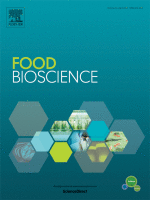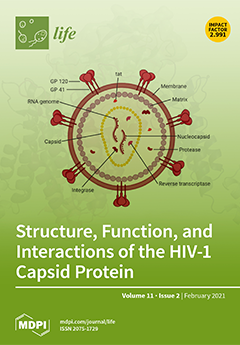Seaweed
How to submit an article:
- Registered users can submit any published journal article that has a unique DOI (Digital Object Identifier) name or link to Research Hub.
- For example, you can paste the full DOI link:
https://doi.org/10.1109/5.771073or just the DOI name:10.1109/5.771073into the field above and click submit. - The person who is first to submit a valid article to Research Hub will forever be credited for it, and every article submission earns you +6 Research Points.
Published research studies are articles that present the findings of original research that has undergone a peer-review process and has been made publicly available in scholarly journals, books or other media.

Therapeutic potential of seaweed extracts: In vitro and in vivo studies on alleviating inflammation and enhancing intestinal barrier function.
2024 Jun Food Bioscience Kim YR, Park S, Kim JY
Saccharina japonica, Capsosiphon fulvescens, Hizikia fusiforme, and Chondrus ocellatus seaweed extracts showed improvements in inflammation-induced Caco-2 cell models and DSS-induced mice, indicating their potential as treatments for inflammatory bowel diseases.
Animal Study Seaweed Inflammation Intestinal Barrier
The Role of Seaweed Polysaccharides in Gastrointestinal Health: Protective Effect against Inflammatory Bowel Disease
2023 Apr 16 Life Liyanage NM, Nagahawatta DP, Jayawardena TU, Jeon YJ
Systematic Review Digestive Health Inflammatory Bowel Disease SeaweedSeaweed polysaccharides, especially those found in the cell walls of marine algae, hold significant potential as a natural, complementary treatment for Inflammatory Bowel Disease (IBD).
Extracts and Marine Algae Polysaccharides in Therapy and Prevention of Inflammatory Diseases of the Intestine
2020 May 31 Marine Drugs Besednova NN, Zaporozhets TS, Kuznetsova TA, Makarenkova ID, Kryzhanovsky SP, Fedyanina LN, et al.
Review Article Inflammatory Bowel Disease SeaweedSeaweed extracts and polysaccharides are effective candidates for developing drugs and functional nutrition products to treat inflammatory bowel disease.
Research insights are moderated by the Research Hub team and offer an at-a-glance overview of interesting research findings.

2023 Life
Seaweed polysaccharides, especially those found in the cell walls of marine algae, hold significant potential as a natural, complementary treatment for Inflammatory Bowel Disease (IBD).
Systematic Review Digestive Health Inflammatory Bowel Disease
The Role of Seaweed Polysaccharides in Gastrointestinal Health: Protective Effect against Inflammatory Bowel Disease
Liyanage NM, Nagahawatta DP, Jayawardena TU, Jeon YJ
2020 Marine Drugs
Seaweed extracts and polysaccharides are effective candidates for developing drugs and functional nutrition products to treat inflammatory bowel disease.
Review Article Inflammatory Bowel Disease
Extracts and Marine Algae Polysaccharides in Therapy and Prevention of Inflammatory Diseases of the Intestine
Besednova NN, Zaporozhets TS, Kuznetsova TA, Makarenkova ID, Kryzhanovsky SP, Fedyanina LN, et al.
Review Articles
Review articles summarise and critically evaluate the current state of research on a specific topic or field by synthesising multiple primary research studies.

The Role of Seaweed Polysaccharides in Gastrointestinal Health: Protective Effect against Inflammatory Bowel Disease
2023 Apr 16 Life Liyanage NM, Nagahawatta DP, Jayawardena TU, Jeon YJ
Systematic Review Digestive Health Inflammatory Bowel Disease SeaweedSeaweed polysaccharides, especially those found in the cell walls of marine algae, hold significant potential as a natural, complementary treatment for Inflammatory Bowel Disease (IBD).
Extracts and Marine Algae Polysaccharides in Therapy and Prevention of Inflammatory Diseases of the Intestine
2020 May 31 Marine Drugs Besednova NN, Zaporozhets TS, Kuznetsova TA, Makarenkova ID, Kryzhanovsky SP, Fedyanina LN, et al.
Review Article Inflammatory Bowel Disease SeaweedSeaweed extracts and polysaccharides are effective candidates for developing drugs and functional nutrition products to treat inflammatory bowel disease.
Clinical Trials
Clinical trials are research studies that involve people and are conducted to evaluate the safety and efficacy of new treatments or interventions, such as drugs, medical devices, or behavioural therapies.
Study Protocols
Published study protocols are detailed plans that outline the objectives, methodology, statistical analyses, and organisation of a research study that have been made publicly available for others to review and use as a reference.
Presentation Slides

Systematic Review
Seaweed polysaccharides, especially those found in the cell walls of marine algae, hold significant potential as a natural, complementary treatment for Inflammatory Bowel Disease (IBD).
Liyanage NM, Nagahawatta DP, Jayawardena TU, Jeon YJ

Review Article
Seaweed extracts and polysaccharides are effective candidates for developing drugs and functional nutrition products to treat inflammatory bowel disease.
Besednova NN, Zaporozhets TS, Kuznetsova TA, Makarenkova ID, Kryzhanovsky SP, Fedyanina LN, Ermakova SP
Executive Summary
Write an executive summary in the form of a blog article on the topic of "Research into Chinese medicine treatment for Seaweed" summarising the research below and using language that can be easily understood by patients and avoiding medical jargon using a professional and caring tone of voice.
Write an executive summary in the form of a blog article on the topic of "Researched Chinese medicine treatments for Seaweed" summarising the research below in an objective and easy to understand way, and using language that can be easily understood by patients. Group the article into Chinese medicine treatments first, followed by nutrition and other treatments. Avoid using medical jargon and use a professional and caring tone of voice.
Write me a concise but easy to understand executive summary on the topic of "Chinese medicine treatments for Seaweed" based on the following research that I will give you. Your summary should be 2 paragraphs long in Australian English spelling and include references to the studies.
A Systematic Review published in 2023 in the journal Life found that Seaweed polysaccharides, especially those found in the cell walls of marine algae, hold significant potential as a natural, complementary treatment for Inflammatory Bowel Disease (IBD). The study analysed the therapeutic properties of sulfated polysaccharides, including carrageenan in red algae, ulvan in green algae, and fucoidan in brown algae, which are abundantly present in the cell walls of marine algae. Addressing key IBD pathologic treatment targets, the research explored polysaccharides' effects on inflammatory cytokines, adhesion molecules, intestinal epithelial cells, and intestinal microflora. These therapeutic targets were analyzed with an emphasis on utilizing natural substances like seaweed polysaccharides for improving IBD treatment efficacy. Building upon the theory of a nutritional preventive mechanism for IBD and the restoration of intestinal health, the findings underscore the potent therapeutic capabilities of these natural compounds. Algal polysaccharides were found to have immense potential as a complementary treatment for IBD. It was suggested that these natural substances can be developed into effective drugs and functionally nutritious products, emphasizing a natural approach towards managing this global public health issue.
A Review Article published in 2020 in the journal Marine Drugs found that Seaweed extracts and polysaccharides are effective candidates for developing drugs and functional nutrition products to treat inflammatory bowel disease. The methodology summarized in this research paper encompasses examining natural compounds, specifically derived from seaweed, which could potentially serve as therapeutic agents for IBD. Concentrating on the unique structural features of algal polysaccharides, the researchers observed their interaction with several factors associated with IBD, such as proinflammatory cytokines, chemokines, adhesion molecules, intestinal epithelial cells, and reactive oxygen and nitrogen. In discussing the results, it was seen that the seaweed extracts and polysaccharides show promise in influencing key therapeutic targets related to IBD, suggesting their potential utility in the development of treatment options for patients. These include drugs, biological food additives, and functional nutrition products. This conclusion was drawn by noting the influence of these extracts and polysaccharides on immune and epithelial cells as well as intestinal microorganisms.
Moderation Tools
Topic
Sign In
Users not signed in are limited to viewing the 5 most recent items of content.